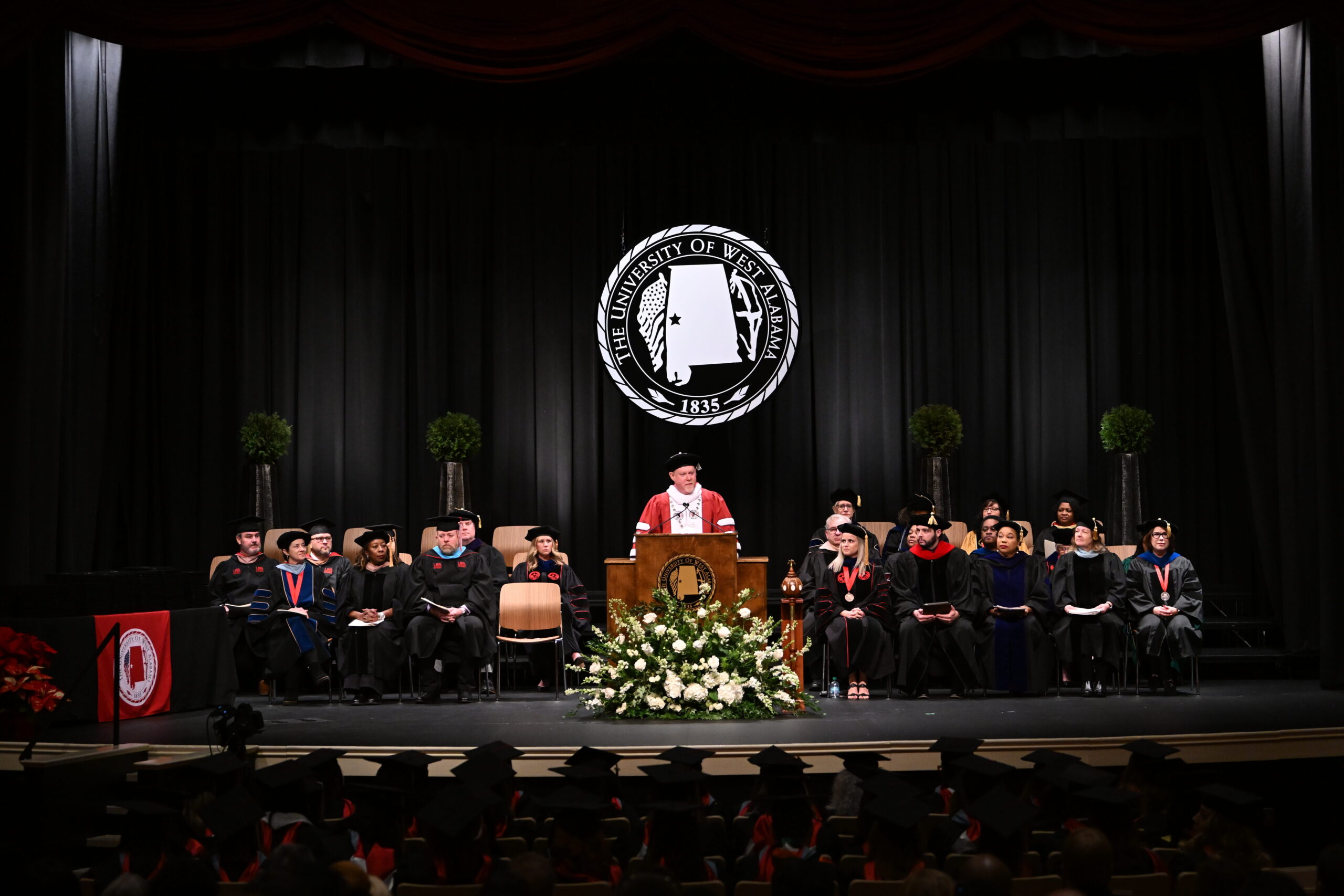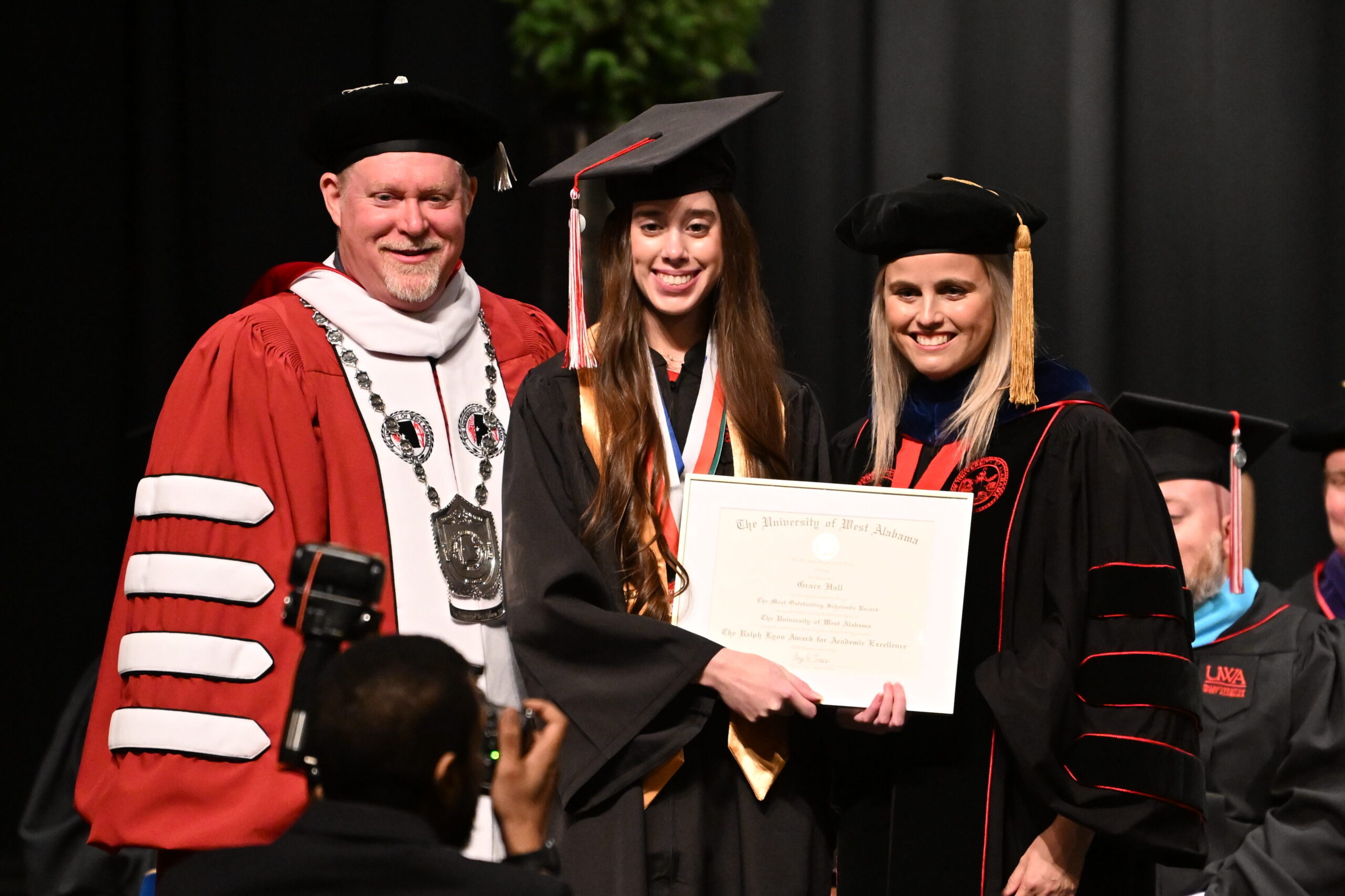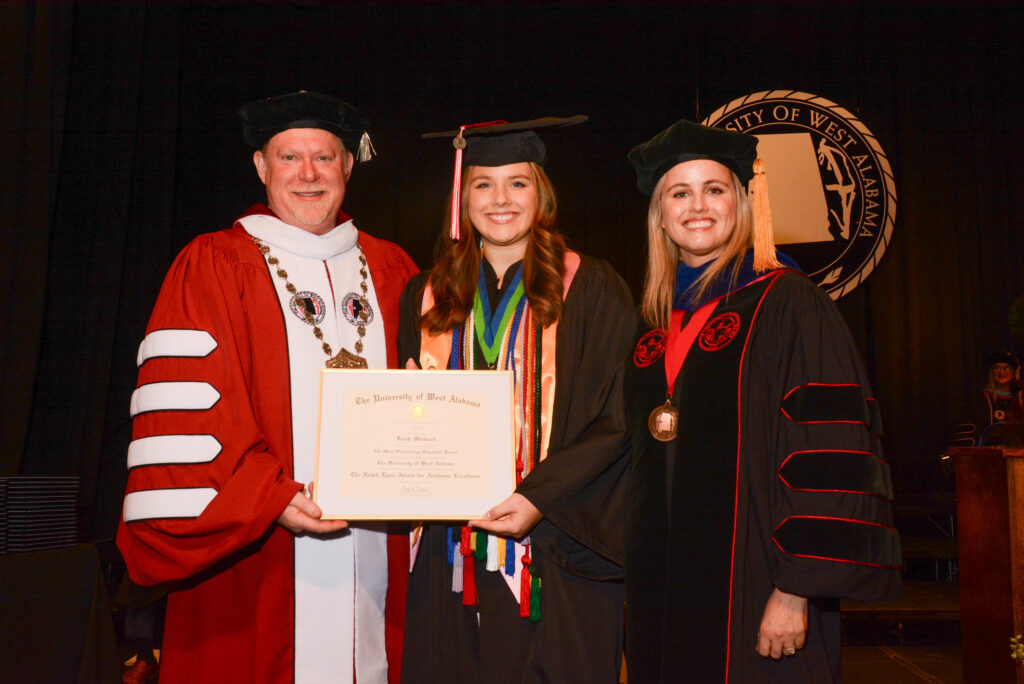
At fall commencement exercises held in December, four students tied for the University of West Alabama’s top graduating student award. Grace Hall of Trussville, Alabama; Briana Hanks of Tuscaloosa, Alabama; Coby Holmes of Collinsville, Mississippi; and Leah Stewart of Greensboro, Alabama, each were recognized for superior academic achievement.
Presented by the Interim Provost Dr. Amy Jones and President Dr. Todd G. Fritch, the Ralph M. Lyon Award for Academic Excellence is given to the student having the most outstanding scholastic record among all students receiving baccalaureate degrees at UWA since the preceding commencement. The award is named in honor of Dr. Ralph M. Lyon, a longtime professor, and administrator at the University.
Hall earned a bachelor of science degree in early childhood & elementary education; Hanks earned a bachelor of arts degree in psychology & English; Holmes earned a bachelor of science degree in integrated marketing communications, and Stewart earned a bachelor of science degree in cell and molecular biology.



(Not pictured: Coby Holmes)